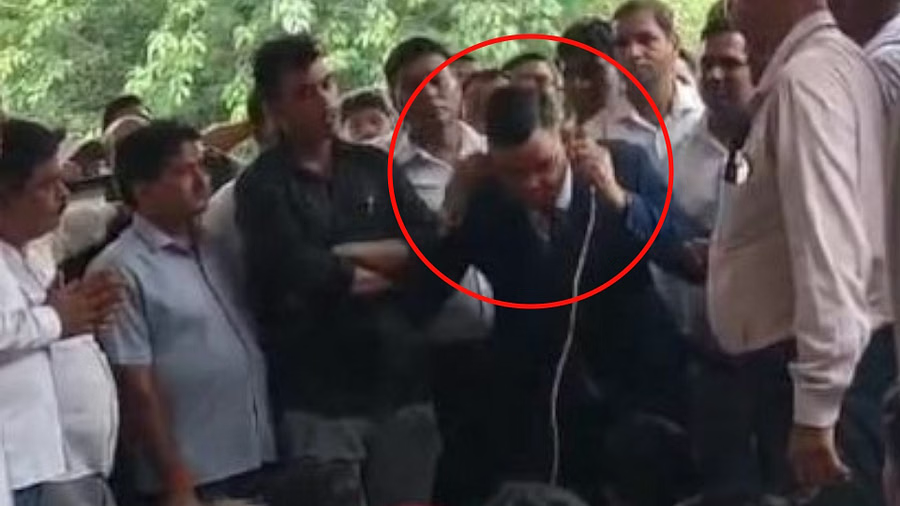IAS officer Rinku Singh Rahi began his tenure as Sub-Divisional Magistrate (SDM) in Shahjahanpur, Uttar Pradesh, with an unexpected move. During an inspection of the tehsil premises, Rahi found litter and witnessed public urination. Taking swift action, he asked the culprits — including a clerk — to perform sit-ups as a corrective punishment. His rationale: open defecation and urination persist despite instructions to use public toilets.
Rahi later explained, “I had already instructed people to use toilets, but some continued urinating in the open. That’s why I made them do sit-ups.”
Lawyers Protest: Clerk Punishment Sparks Uproar
Among those punished was a clerk, whose public reprimand sparked outrage from a group of lawyers present at the site. The advocates staged a protest, accusing the SDM of humiliating a government employee. Lawyer Virendra Kumar Yadav said, “He made our clerk do sit-ups in front of everyone. We asked him why he did that.”
As tensions rose, the officer found himself facing a hostile legal fraternity on day one.
A Gesture of Accountability: Officer Joins the Sit-Ups
In a surprising twist, Rahi addressed the lawyers’ protest by performing sit-ups himself in front of the gathering. The advocates reportedly questioned whether he would punish himself for the unclean premises under his jurisdiction. Rahi agreed without hesitation.
“Yes, since it was our fault too, I did it,” he told them. The act — a symbolic gesture of shared accountability — was captured on video and went viral across social media, sparking a flood of reactions online and in administrative circles.
Public Reaction: Viral Video and Divided Opinions
The video of Rahi holding his ears and doing sit-ups resonated widely. Some saw it as a rare display of bureaucratic humility and discipline; others criticized the method as excessive and potentially humiliating.
Rahi defended his actions: “If someone does wrong, will you punish yourself too? I said yes, and that’s why I did sit-ups there.”
Eventually, the lawyers called off their protest, citing Rahi’s apology and his willingness to share responsibility. He also stated that his gesture was meant to foster better ties with the legal community and signal a new approach to public responsibility.



